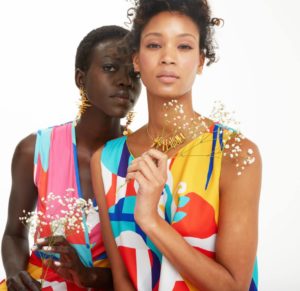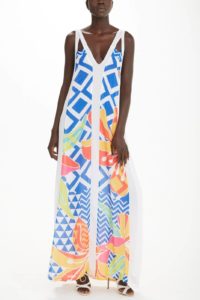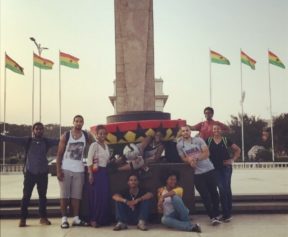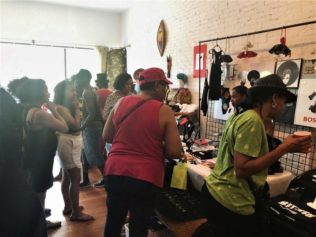
“There are a lot of amazing designers of the African diaspora” says Tania Celestin, co-founder of the luxury start-up Oluwa & Celestin. “However, it seems that only a few are able to have the spotlight at a time. Unfortunately, a lot of designers are self-funded with no big outside investors, so they are not able to commercially produce a collection every season.
“Most are definitely not able to scale their business to supply a large department store like Barney’s or Neiman Marcus, so that is where we come in.”
In 2016, Celestin teamed up with business partner Ian Oluwa Omotoso to form Oluwa & Celestin, a high-end retail store specializing in designer goods from across the African diaspora. While meeting as co-workers in the luxury retail industry in Los Angeles, Celestin and Omotoso discovered the lack of Black representation and bonded over a common interest in pushing the work of Black designers to the forefront.
“We both agreed that there was a lack of representation of Black designers and we wanted to be at the forefront of creating a platform for luxury designers of the African diaspora” Celestin said. “We essentially created a lifestyle store where we would want to shop.”
The name Oluwa & Celestin was derived from both of their names, Celestin being of Haitian origins and Oluwa of Nigerian origins, perfectly reflecting the diverse scope of the African diaspora. The range of high-end goods that the company carries also reflect that diversity, with designer brands from regions such as Africa, America, Europe and the Caribbean. The company showcases Black designers such as Malene B, Kamilah Willacy, Laurenceairline, Françoise Elizée and AphroChic. The e-Commerce catalog includes apparel, jewelry, beauty products, lifestyle accessories and home décor.
“No other retail site caters to designers from across the African diaspora with a full range of products like we do,” Celestin said.
“Our designers are from African, European, Caribbean, African-American and Afro-Latino. And we offer homeware, apparel [and] accessories, and will be expanding our offerings soon.”
As a newly developed start-up, part of Oluwa & Celestin’s focus has been establishing collaborative relationships with the designers they work with. Black designers benefit by being featured on the online store, which introduces them to new markets and draws new customers to them. “For us, it’s not just about the color of your skin,” Celestin said. “It’s the talent, the quality and the growth we see in your company that factor in us wanting to work with certain brands. Our relationship with our designers is more like a partnership.”
With the internet-buying culture changing the face of the high-fashion industry, many designers have been struggling to adapt. According to the Wall Street Journal, nearly 70 percent of surveyed fashion executives believe that conditions for the fashion industry have gotten worse because of the digital age. The industry as a whole is experiencing a decline, with 2016 being one of the worse years for fashion since the last financial crisis. Designers have had to cater to digital consumers’ need for immediate gratification and their short attention spans, which often means running contrary to the traditional ethos of the fashion world. Where designers are accustomed to having time to perfect their collection after a show, new pressures force designers to prepare their collections before a show or risk losing the interest of their buyers.

The company also is exploring new marketing opportunities to build brand awareness for Black designers. But while Oluwa & Celestin prides itself on bringing a sense of awareness to its Black audience, it doesn’t limit itself to that audience. The company opens up its catalog to all potential buyers, expanding the markets available for the company and the designers.
“We are an inclusive company and one of our mottoes is ‘Cultural Appreciation’ vs. ‘Appropriation.’ Although our designers are Black, we really wanted to be sure to market ourselves as diverse as possible,” Celestin said.
For the fall season, Oluwa & Celestin plans to add new designers and offer new price ranges and a broader product base. In five years, Celestin hopes to establish a flag-ship location in New York and continue its growth.
“No matter what vision you have or what you want to represent, you can do it,” Celestin said. “We had a vision to create history and a legacy, and we believe that we’re doing just that.”
To find out more, please visit www.OluwaCelestin.com



